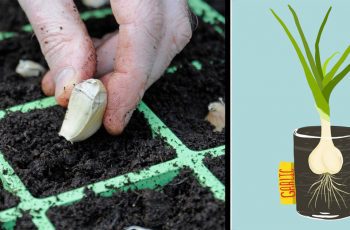Hello, I’m excited to share with you the incredible benefits of parsley tea as a natural remedy for swollen legs. If you’re struggling with discomfort caused by swollen feet or ankles, also known as edema, you’ll be amazed at what parsley tea can do for you. So, why is parsley tea is the best remedy for swollen legs?
Swollen legs can be caused by various factors, including poor blood circulation, kidney problems, heart disorders, or prolonged periods of sitting or standing. It’s essential to find a natural remedy that provides relief without any side effects. That’s where parsley tea comes in.
Parsley tea has been proven to effectively reduce swelling due to its diuretic properties, which help eliminate excess fluid from the body. By promoting urinary flow, parsley tea helps flush out the retained fluids that cause swollen legs. Additionally, the antioxidants in parsley tea contribute to the overall well-being of your body.
Not only does parsley tea help reduce swelling, but it also has anti-inflammatory benefits. The eugenol found in parsley helps alleviate joint swelling and discomfort. This herbal remedy has been recommended by experts like Dr. John R. Christopher, a renowned herbalist, for its effectiveness in reducing swelling and fluid retention.
By incorporating two quarts of parsley tea into your daily routine, you’ll experience relief from swollen legs and the discomfort associated with edema. This natural remedy has no harmful side effects and offers a holistic approach to reduce swelling and inflammation.
Reasons Why Parsley Tea is the Best Remedy for Swollen Legs
- Parsley tea is a natural remedy for swollen legs, offering relief from discomfort caused by edema.
- It acts as a diuretic, promoting urinary flow and reducing fluid retention.
- Parsley tea also has anti-inflammatory benefits due to the presence of eugenol.
- Drinking two quarts of parsley tea daily can effectively reduce swelling and fluid retention.
- Consult with a healthcare provider if your symptoms persist or worsen.
Understanding Edema and Swollen Feet
Swollen feet or ankles, also known as edema, occur when there is an accumulation of fluid in the lower extremities. This condition can be caused by various factors such as prolonged sitting or standing, hot weather, kidney problems, heart disorders, or poor blood circulation. While edema itself is not harmful, it can cause discomfort and may be a symptom of underlying issues that need to be addressed.
The Power of Parsley Tea
Parsley tea, often overlooked as a simple garnish, is a powerful natural remedy. It acts as a diuretic by inhibiting sodium and potassium ion pumps and increasing urinary flow. Drinking parsley tea can help reduce fluid retention and alleviate swelling in the legs and feet.
One of the key benefits of parsley tea is its rich antioxidant content. Antioxidants not only protect the body from free radicals but also help improve blood sugar levels and support overall health.
Parsley tea is also known for its flavonoid content, which gives it anti-cancer properties. Flavonoids are natural compounds that have been shown to help prevent the growth of cancer cells. Incorporating parsley tea into your daily routine can be a proactive step towards reducing the risk of certain types of cancer.
Another beneficial component of parsley tea is eugenol, which has strong anti-inflammatory properties. This compound helps suppress joint swelling, making it an excellent natural remedy for discomfort associated with swollen legs.
Dr. John R. Christopher, a renowned herbalist, recommends drinking two quarts of parsley tea daily to reduce swelling and fluid retention. By following this advice, you can tap into the power of this natural remedy and experience relief from swollen legs.
Other Natural Remedies for Swollen Legs
In addition to parsley tea, there are several home remedies that can help reduce swollen feet and ankles. These natural remedies can provide relief from discomfort and support the body’s natural healing process. Here are some effective remedies to try:
Compression Stockings
Compression stockings are specially designed to improve circulation in the legs and reduce swelling. By applying gentle pressure, they help prevent fluid buildup and promote better blood flow. These stockings can be worn throughout the day and are available in various sizes and compression levels.
Epsom Salt Foot Soak
An epsom salt foot soak can provide quick relief from swollen legs. Dissolve a handful of epsom salts in warm water and soak your feet for 15 to 20 minutes. Epsom salts contain magnesium sulfate, which has anti-inflammatory properties that can help reduce swelling and relieve discomfort.

Elevation
Elevating your legs above the level of your heart can help facilitate venous drainage and reduce swelling. Lie down and prop your legs up on pillows or a bolster to elevate them. This simple technique can improve circulation and provide relief from swollen legs.
Massage
A gentle massage can help stimulate lymphatic drainage and reduce fluid buildup in the legs. Use upward strokes and circular motions to massage the affected area. You can also consider seeking professional lymphatic drainage massage for more targeted relief.
Reducing Sodium Intake
Excessive sodium intake can contribute to water retention and swelling in the body. Reduce your sodium intake by avoiding processed and packaged foods, as they tend to be high in sodium. Instead, opt for fresh fruits, vegetables, and whole grains to maintain a balanced diet and prevent water retention.
These natural remedies, combined with parsley tea, can help alleviate the discomfort caused by swollen legs. However, if your symptoms persist or worsen, it’s important to consult with a healthcare professional for further evaluation and treatment.
When to Seek Medical Attention
While home remedies can be effective for reducing swollen legs, there are certain situations where medical attention may be necessary. If swollen ankles persist for more than one month, worsen over time, or are accompanied by pain, redness, and warmth, it is important to consult with a healthcare provider. Additionally, if swelling is a result of an injury, pregnancy, congestive heart failure, arthritis, medications, or chronic conditions, seeking medical attention is crucial.
A healthcare provider can evaluate the underlying causes of swollen legs and provide appropriate treatment. They may recommend further testing or refer you to a specialist for further evaluation and management. It is important not to ignore persistent swelling, as it can be a sign of a more serious underlying condition that requires medical intervention.
Remember, your healthcare provider is the best person to guide you in determining the cause of your swollen legs and the most appropriate course of treatment. Seeking timely medical attention is key to addressing the root cause and finding effective relief for your discomfort.

Conclusion
Parsley tea is a powerful natural remedy for swollen legs and feet. Its diuretic properties help reduce fluid retention and alleviate discomfort caused by edema. The antioxidant content in parsley tea provides additional health benefits while the anti-inflammatory properties help reduce swelling.
By incorporating parsley tea into your daily routine, you can effectively reduce swelling and promote overall leg health. Remember to consult with a healthcare provider if your symptoms persist or worsen, as swollen legs may be indicative of underlying conditions that require medical attention.
Choose parsley tea as a natural and accessible remedy to combat swollen legs and enjoy the benefits of reduced edema and improved comfort. Take control of your leg health with this simple, yet effective, natural solution.
FAQ
What causes swollen feet and ankles?
Swollen feet or ankles, also known as edema, can be caused by various factors such as prolonged sitting or standing, hot weather, kidney problems, heart disorders, or poor blood circulation.
How does parsley tea help reduce swelling?
Parsley tea acts as a diuretic, balancing blood sugar levels, and providing anti-inflammatory benefits. It can help reduce swelling and fluid retention.
How much parsley tea should I drink to reduce swelling?
It is recommended to drink two quarts of parsley tea daily to help reduce swelling and fluid retention.
Are there other natural remedies for swollen legs?
Yes, other natural remedies for swollen legs include wearing compression stockings, using epsom salts in a foot soak, elevating the legs, getting a massage, and reducing sodium intake. These remedies can help decrease inflammation and promote better circulation.
When should I seek medical attention for swollen legs?
If swollen ankles persist for more than one month, worsen over time, are accompanied by pain, redness, and warmth, or are a result of an injury, pregnancy, congestive heart failure, arthritis, medications, or chronic conditions, it is important to consult with a healthcare provider.




